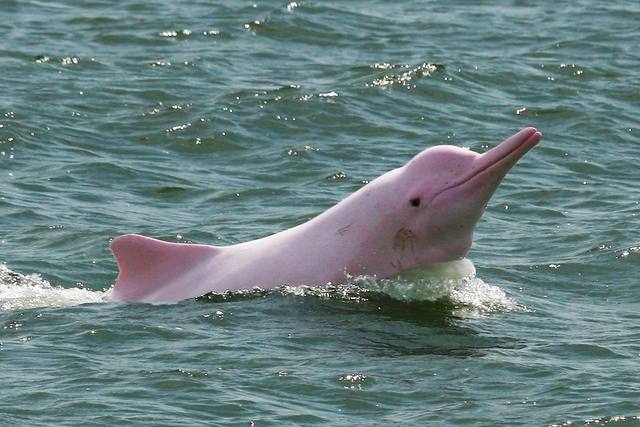
The National Oceanic and Atmospheric Administration (NOAA) in the United States has issued a ruling on a petition by several US-based environmental groups which lists the Taiwanese humpback dolphin (Sousa chinensis taiwanensis) as an endangered species under the Endangered Species Act (“ESA”). This ruling will further help efforts to protect this population of dolphins that live in shallow waters off Taiwan’s west coast.
In their ruling, the NOAA outline the steps they took to reach this decision, including a review of the petition and all available information as well as a public consultation period to determine whether the dolphins should be listed as threatened or endangered. The low population (currently under 100), ongoing over-development of coastal areas, fresh water diversion and other factors led them to determine that the dolphins warrant listing as endangered. An endangered species is any species which is in danger of extinction throughout all or a significant portion of its range. The NOAA gave the following reasons for the listing:
- the best available information indicates that the subspecies has a critically small population of less than 100 individuals, which is likely declining;
- the Taiwanese humpback dolphin has a very restricted range, occurring only in the shallow waters off the western coast of Taiwan;
- the subspecies possesses life history characteristics that increase its vulnerability to threats, including that it is long-lived and has a late age of maturity, slow population growth, and low rate of reproduction and fecundity;
- the subspecies is confined to limited habitat in a heavily impacted area of coastline where ongoing habitat destruction (including coastal development, land reclamation, and fresh water diversion) contributes to a high risk of extinction;
- the Taiwanese humpback dolphin is experiencing unsustainable rates of fisheries interactions,including mortality and major injuries due to bycatch and entanglement in fishing gear; and
- existing regulatory mechanisms are inadequate for addressing the most important threats of habitat destruction and fisheries interactions.
By being listed as endangered, the dolphins are protected under US law and prohibit actions by federal and state agencies or persons subject to US jurisdiction, including those at high sea, that would cause harm to the animals and their habitat. While no population of Taiwanese dolphins live in areas subject to US jurisdiction, such a decision by the US government holds considerable weight and provides further momentum to conservation efforts on the ground in Taiwan.
Winkler Partners has been a long term supporter of Wild at Heart Legal Defense Association, and in particular, their efforts at protecting the dolphins and their habitat. You can read more about our support of Wild and the dolphins on the 1% For The Planet website here.

